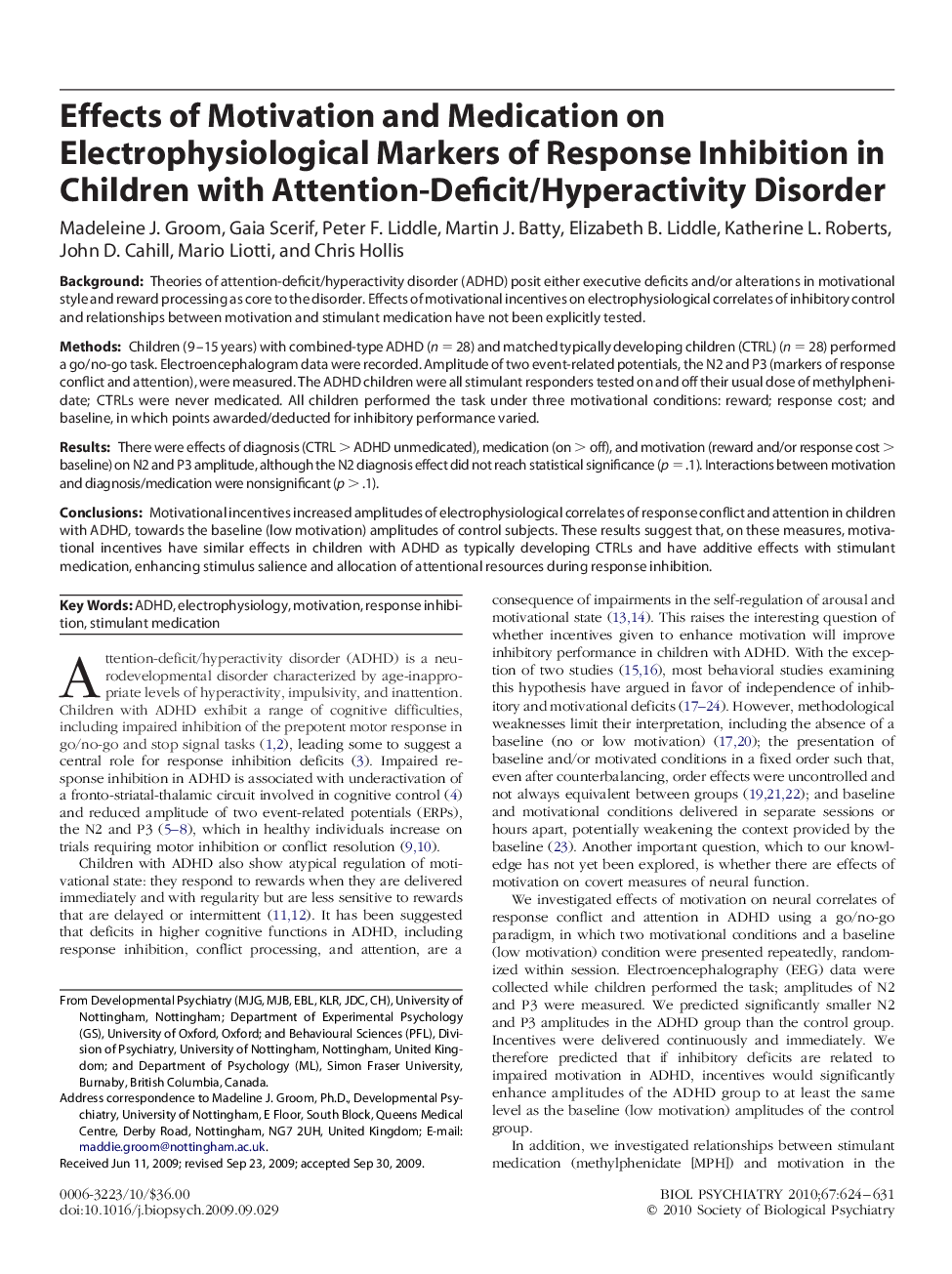| کد مقاله | کد نشریه | سال انتشار | مقاله انگلیسی | نسخه تمام متن |
|---|---|---|---|---|
| 6229103 | 1276591 | 2010 | 8 صفحه PDF | دانلود رایگان |

BackgroundTheories of attention-deficit/hyperactivity disorder (ADHD) posit either executive deficits and/or alterations in motivational style and reward processing as core to the disorder. Effects of motivational incentives on electrophysiological correlates of inhibitory control and relationships between motivation and stimulant medication have not been explicitly tested.MethodsChildren (9-15 years) with combined-type ADHD (n = 28) and matched typically developing children (CTRL) (n = 28) performed a go/no-go task. Electroencephalogram data were recorded. Amplitude of two event-related potentials, the N2 and P3 (markers of response conflict and attention), were measured. The ADHD children were all stimulant responders tested on and off their usual dose of methylphenidate; CTRLs were never medicated. All children performed the task under three motivational conditions: reward; response cost; and baseline, in which points awarded/deducted for inhibitory performance varied.ResultsThere were effects of diagnosis (CTRL > ADHD unmedicated), medication (on > off), and motivation (reward and/or response cost > baseline) on N2 and P3 amplitude, although the N2 diagnosis effect did not reach statistical significance (p = .1). Interactions between motivation and diagnosis/medication were nonsignificant (p > .1).ConclusionsMotivational incentives increased amplitudes of electrophysiological correlates of response conflict and attention in children with ADHD, towards the baseline (low motivation) amplitudes of control subjects. These results suggest that, on these measures, motivational incentives have similar effects in children with ADHD as typically developing CTRLs and have additive effects with stimulant medication, enhancing stimulus salience and allocation of attentional resources during response inhibition.
Journal: Biological Psychiatry - Volume 67, Issue 7, 1 April 2010, Pages 624-631